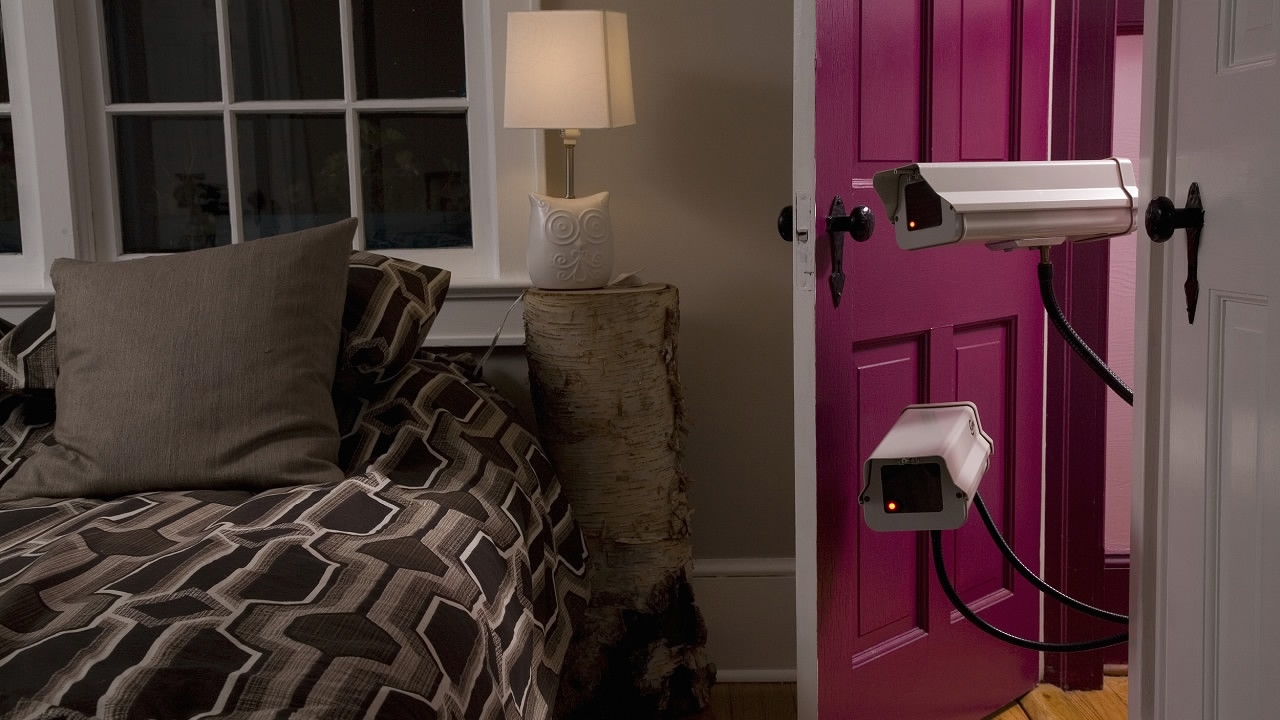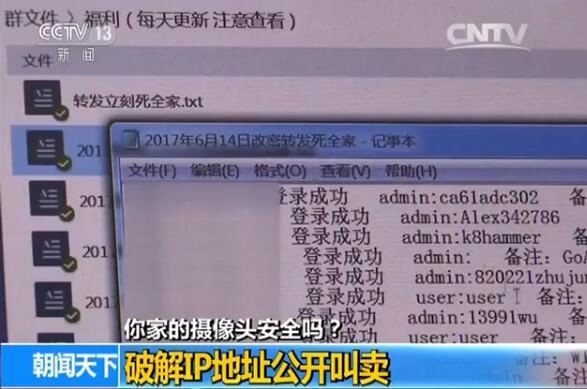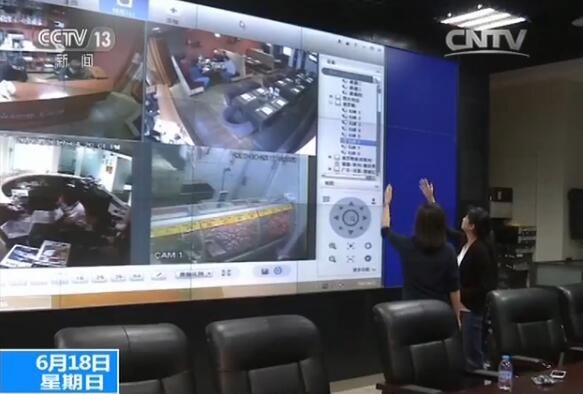
Tech & Sci
19:59, 20-Jun-2017
The hackers offering public broadcasts from your home surveillance camera

Whatever becomes smart also becomes vulnerable to hacks.
The Internet integration of newer models of home surveillance cameras may be useful when you want to view footage online, but it has also attracted hackers, who sell the passwords to the gadgets online, and lead strangers to have an inside view of users' bedrooms.
That means as you are enjoying watching your baby at home from a distant place, hundreds of total strangers may also doing the same thing!
China Central Television (CCTV) peeked inside this emerging privacy-invading industry.

A hacked camera streams video to a stranger's phone (image is blurred to protect victim's privacy). /CCTV Photo
A hacked camera streams video to a stranger's phone (image is blurred to protect victim's privacy). /CCTV Photo
By searching "camera hack" in popular online messenger QQ, you can find a lot of group chats, in which hackers are selling passwords. These criminals say if you pay enough, they can even sell you “scanner” software to find more hackable cameras on the Internet.
“Hacking packages” are on sale for as little as 25 US dollars, and a seller can easily shift 100 copies in a month.
Some hackers even publish camera passwords they found to attract buyers. QQ shows that those passwords have been downloaded more than 1,000 times.

Passwords are marked as "verified" by hackers, and published online. /CCTV Photo
Passwords are marked as "verified" by hackers, and published online. /CCTV Photo
CCTV managed to contact a victim, and confirmed that the views hackers got were actual views.
Under the hood
How do hackers get the passwords to cameras? CCTV found the answer at CNCERT, the Chinese agency responsible for the security of national public computer networks.
"These scanners are guessing the cameras' passwords, on a massive scale," CNCERT Senior Engineer Gao Sheng told CCTV. "Their first guesses are weak passwords like 'user' or 'admin'."

A working "scanner" is showcased by CNCERT. It can scan vulnerabilities on the Internet. /CCTV Photo
A working "scanner" is showcased by CNCERT. It can scan vulnerabilities on the Internet. /CCTV Photo
Earlier this year, government quality inspectors in China conducted checks on 40 batches of smart cameras, 32 of which were found to have data safety vulnerabilities.
Weak passwords are everywhere, waiting for hackers to discover. It is a global problem instead of a Chinese phenomenon.

CNCERT showcases possible hacking of smart cameras. /CCTV Photo
CNCERT showcases possible hacking of smart cameras. /CCTV Photo
To avoid falling victim to this kind of hack, Gao provided three useful tips for smart camera users.
1. Do not keep the factory default password for your camera. Do not use simple password like "123456" either.
2. Do not point the camera at bedrooms and bathrooms.
3. Get into the habit of running virus scanning software regularly.

SITEMAP
Copyright © 2018 CGTN. Beijing ICP prepared NO.16065310-3
Copyright © 2018 CGTN. Beijing ICP prepared NO.16065310-3